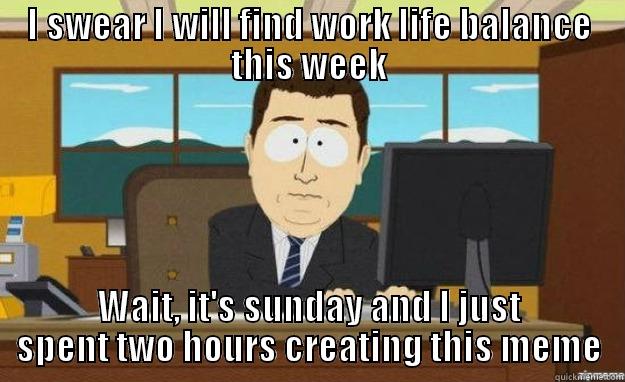There have been reams of research conducted on keeping a healthy work-life balance. It’s practically a meme. Actually, it is a meme…

(Source: quickmeme.com)
You have the best intentions, I know. to get to where you are, you made sacrifices. In the beginning, there were no vacations, because they didn’t give you the time. You hadn’t earned it. Now that your career has momentum, you can’t seem to enjoy the time you’ve earned.
What’s worse, nobody says anything, not yet anyway. The closest you get this issue is when your peers marvel that you never take time off.
You would never admit it, but you feel a sense of pride about your work ethic. You may even feign modesty, saying, “I really must take a vacation soon,” but it’s a show. You love being naughty.
It’s the dumbest thing you do. You get nothing for your dedication. In fact, you may get in trouble for it. When you understand why it will make sense. Keep reading.
Not Healthy

(Source: entrepreneur.com)
Let’s first cover the obvious. There is a good reason we receive paid vacation. You’re brain and body (they’re the same thing, goofball) need a break. They need more than a long weekend.
If you dig around on the internets you’ll find that opinions vary, but lean towards the longer your vacation, the better. The logic is that you need enough time to unwind from your routine.
If all you take are long weekends or company holidays, then you never can unplug. A two-week vacation, for example, gives your body the time you need to disengage.
Two weeks also accounts for uncertainties. There’s nothing worse than planning a one week trip to Hawaii, only to land at the start of a three-day storm. You just lost almost half your vacation to rain.
If you had two weeks, it wouldn’t have been such a big deal.
Not Inspirational

(Source: health.spectator.co.uk)
People who don’t vacation are boring. If you disagree, it’s because you don’t vacation.
You’re not included when others trade travel adventures. Others don’t talk to you about your travels because you have none outside of that timeshare you wish you never bought.
Exchanging tales of adventure is a time-honored communal behavior amongst humans.
The people you work with will never tell you, but they find your inability to disengage from work unapproachable. They think you would never appreciate their desire to take off a little time; you might they weren’t dedicated enough.
If they work for you, they don’t trust your respect for their work-life balance. You’re setting an unrealistic standard, one that drives good people from your team. Nobody wants to work hard for a person who seems to think the work affords no time for getting away from it all.
No Awards

(Source: gameacademy.com)
This is gonna come as a shock to you, but they will never promote you for not using your vacation time.
Oh sure, it will roll over in some companies. They may even roll it forever because, well, it’s yours anyway. You earned it, even though you don’t seem to value yourself enough to take it.
Here’s what they also will not do. You’ll receive no bonuses, no payouts, no awards, no pats on the back, no raised eyebrows, no thankyouverymuches, shall I go on? What you may get, if you work for an organization worth working for is documentation placed in your file.
You may find yourself in the hot seat with human resources for not respecting your work-life balance. The last thing any large organization wants is a lawsuit aimed at them for creating a situation where employees are afraid to use their vacation time.
To combat this, they do what companies know best: document your rear end for putting them in harm’s way.

(Source: indeksanalyse.no)
Do yourself a favor by being the example. Be the person that everybody else wants to be. There’s a lot more to that pie, but a large slice of it is taking your vacation time.
Join the sharing of adventures when people talk. This is how people come to know you better, to trust you more, to see you as someone relatable.
You stand a better chance of getting ahead by taking your vacations, than by skipping them. Not to mention, you look great with a tan.



